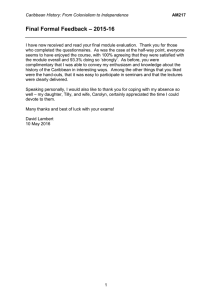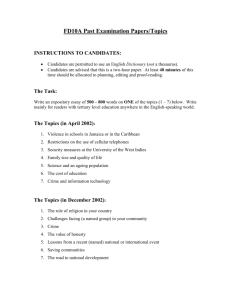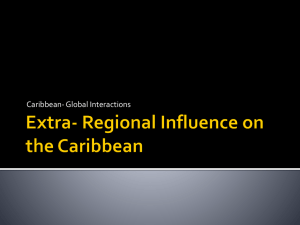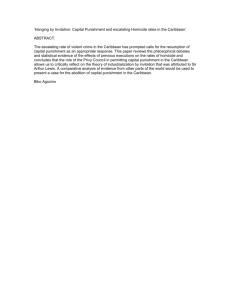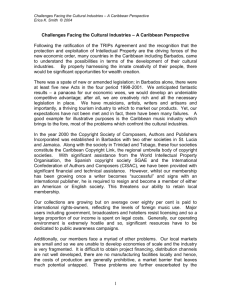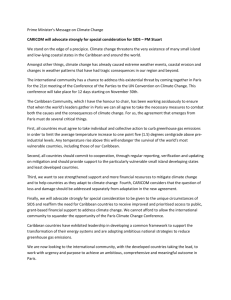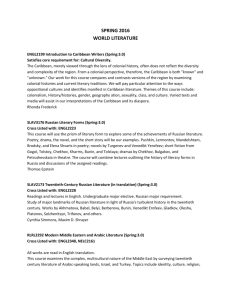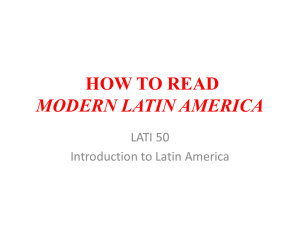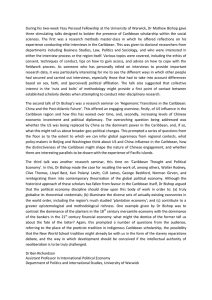Caribbean Independence Movements: A Study Guide
advertisement
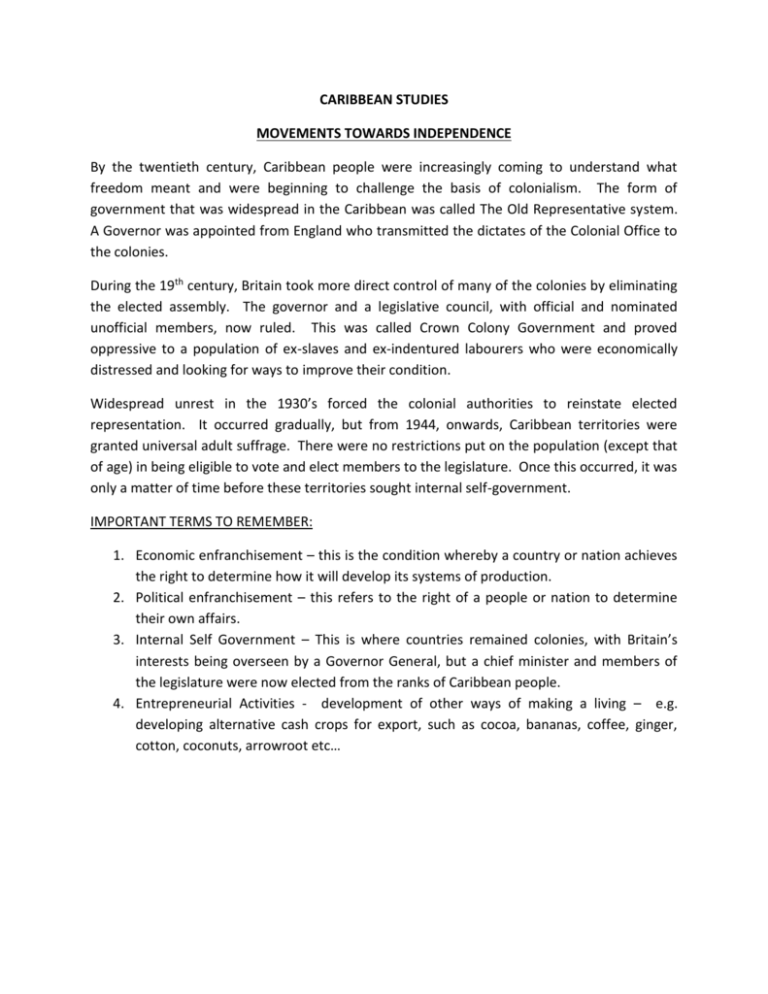
CARIBBEAN STUDIES MOVEMENTS TOWARDS INDEPENDENCE By the twentieth century, Caribbean people were increasingly coming to understand what freedom meant and were beginning to challenge the basis of colonialism. The form of government that was widespread in the Caribbean was called The Old Representative system. A Governor was appointed from England who transmitted the dictates of the Colonial Office to the colonies. During the 19th century, Britain took more direct control of many of the colonies by eliminating the elected assembly. The governor and a legislative council, with official and nominated unofficial members, now ruled. This was called Crown Colony Government and proved oppressive to a population of ex-slaves and ex-indentured labourers who were economically distressed and looking for ways to improve their condition. Widespread unrest in the 1930’s forced the colonial authorities to reinstate elected representation. It occurred gradually, but from 1944, onwards, Caribbean territories were granted universal adult suffrage. There were no restrictions put on the population (except that of age) in being eligible to vote and elect members to the legislature. Once this occurred, it was only a matter of time before these territories sought internal self-government. IMPORTANT TERMS TO REMEMBER: 1. Economic enfranchisement – this is the condition whereby a country or nation achieves the right to determine how it will develop its systems of production. 2. Political enfranchisement – this refers to the right of a people or nation to determine their own affairs. 3. Internal Self Government – This is where countries remained colonies, with Britain’s interests being overseen by a Governor General, but a chief minister and members of the legislature were now elected from the ranks of Caribbean people. 4. Entrepreneurial Activities - development of other ways of making a living – e.g. developing alternative cash crops for export, such as cocoa, bananas, coffee, ginger, cotton, coconuts, arrowroot etc…
